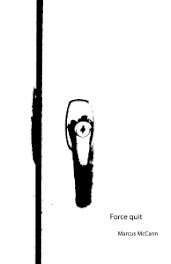Marcus McCann
Sunday, July 27, 2008
It would have sounded like excellent stuff to me in my 20s. Certainly, I was way into polyandry before I did something, what was it, oh yeah, grew up.
It's funny, because last time I checked "Oh, grow up" wasn't exactly the most rational, adult argument. I'm not even going to get into the infantalizing, paternalistic agism at that statement's heart.
Anyway, she goes on to say a number of really silly things, dismissing the book as having no value and, in places, using dripping sarcasm in place of analysis. She gives us flashes of her own ideological blinders, as in:
There isn't intimacy of any sort that I would recognize, either, because no one seems anything but busy, competent and shallow.
And...
I read recently that the most refined pleasure is found in performing our duty, and for that reason alone, I suspect traditional marriage will survive the assaults of Block and her polyamorous comrades. One holds pity for those who succumb.
In an other bit of the review -- a commonly held belief that always makes me chuckle -- Nickson argues that in the advent of gays ruining marriage, poly and open relationships are the wolfs at the door. In a way, I hope that's true. Folks who have utilized their newfound sexual freedoms should be fighting for the decriminalization of polygamy (and sex work, bathhouses, rough sex, BDSM porn...) as analogous.
I also never really understood the sentiment about marriages as the "millennia-old institution upon which human civilization is built."
A) Our concept of marriage is quite new -- probably less than three hundred years, and by some metrics (equality within the marriage; the right for a woman to withhold consent to sex; property rights at dissolution) is only a generation old.
B) What about the other institutions by which our civilization was built: autocracy, serfdom, misogyny, racism, slaves, wars, genocide, ecological ravaging. Are they worth keeping around just because they're old?
Anyway, this kind of drive-by smear of sexually open relationships drives me nuts.
Sunday, July 06, 2008
Old Barns
Tim Bowling
Starlight especially seems to love them;
its fractured brilliance angles in
the broken loft
with so much ease and warmth
it's as though the long, golden needles
of a distant harvest
had fallen through the galaxies
in search of home, as though
somewhere in the immensity of darkness
a wagonload of hay had overturned
and centuries later settled in beside
the swallows' nests and spiderwebs
like a living thing that knows
where it belongs.
This is the power these structures have,
the sense of sanctuary they possess;
animals sheltered from the storm
men and women laying down their tools
children dreaming in the lofts...
disparate lives and disparate refuge...
so the wind plays through these gaps
like the collective heaving of a sigh
that the very walls accommodate
as if to say “we understand.”
And driving by them, autumn nights,
splashing their planks
with the milk of headlight beams,
I have often felt the urge to turn inside
and watch the needles streaming down
in crossing lines of pure geometry,
the delicate puzzle of time and space
suddenly woven into an owl's flight
and swallowed by the air;
but I have rarely stopped:
somehow it seems enough to know
they still exist, these wooden caves
crowded with their ghosts of early dreams
and honest labour, gathering
the same slow crop of the stars
year after year, and promising
these few spilled wagons for us all;
a subtle interplay of gold, a little silence,
and the corner of a field to vanish in.
(from Dying Scarlet, 1997, Nightwood Editions)
Okay, before I say anything else: you probably just noticed that the poem ends with a preposition. Some of you were probably taught that such constructions are no-nos. Ending with a preposition is awkward and inelegent, but not grammatically incorrect. It's no more incorrect than using a phrasal subject, like I did in the last sentence – the phrase “ending with a preposition” was the subject. Awkward, yes, grammatically incorrect, no. And one of poetry's athletic endeavors is to stretch gammar, to make us aware of it by bending the rules, or using them in ways that draw attention to themselves...
Each time I read the poem, I get sluggish toward the end, as if Bowling's getting a little too preachy, a little too pat. Isn't this going to wrap up neatly?, I think. But the thrilling conclusion slightly unbalances the plodding drive toward conclusion that preceeded it. It's precarious, perfect. What a clunker it would have been to end with “in which to vanish” instead!
At 43 lines and 250 words, Tim Bowling's “Old Barns” is quite a bit more dense than some of the poems I've discussed so far. It's got more than twice as many words as Karen Solie's “Dear Heart”; does that make it flabby or inefficient?
Just try truncating it. Here's a summary of the first fourteen lines:
Starlight love barns; it angles in
lofts like golden needles
of a distant harvest falling through space
or as if
a wagonload of hay overturned
and centuries later settled into the barn.
The technical meaning remains, but the conversational tone (more on that in a minute) is gone. But what's most important in these lines, to my ear, is that the gentle image (of light as hay falling through the “galaxies”and where it has “settled in” the barn) is reproduced in the almost weightless line.
The winding roundabout-ness in the first stanza's conclusion is probably an authorial dodge to avoid using “home” twice in one stanza.
Still, “a living thing that knows where it belongs” is gorgeous and somehow – yes – gentle. Indeed, gentle seems to be the dominant mode of the poem, one that a tighter syntax would, I think, have strangled. Watch him string a metaphor over four full lines at the end of the second stanza:
so the wind plays through these gaps
like the collective heaving of a sigh
that the very walls accommodate
as if to say “we understand.”
A lesser poet would have finished with stanza three “I have often felt the urge to turn inside/ and watch the needles streaming down” but not Bowling. Like the chapter endings of the Hardy Boys books I read growing up, stanza three ends with a cliffhanger — “but I have rarely stopped” — left dangling by, and this is an odd choice, a colon. He quietly drives you over that final stanza break with a not-quite-full pause. And it means that, despite the fact that all four stanzas start with full sentences, the final one begins with a lower case letter. In addition to providing a little energy to the stanza break, it also makes that final thought somehow diminutive, less urgent, more spare:
somehow it seems enough to know
they still exist,
But still the line shivers with meaning. He could be referring to family that's drifting apart. Or a much-loved-but-seldom-returned-to piece of art: a novel from adolescence, a favourite poem tucked away on a shelf, a painting in the Louvre. Why does that provoke guilt?
***
I think reading and writing about poems is an
important corollary to the act of composition.
Why do you love what you love?
A look at 12 Canadian poems:
On "Dear Heart" by Karen Solie
On "This Land is Our Land" by John Barton
On "Spell G.O.D" by Kevin Connolly
On "Listening to Satoshi" by DG Jones
On “Shuffle 29, i” by Pearl Pirie
On “Bareback Mountain Camp: A Fucking
Greek Tragedy” by Jeff Higgins
On “96 Rochester St” by rob mclennan
On “Getting Sick” by Michael Redhill
On “Idleness” by David O'Meara & “Fucking” by Shane Rhodes
On “Glyph” by Judith Miller, “Iowa” by Travis Nichols
and “Gurgle” by Lisa Robertson
Int'l:
On "Shiver" by Seamus Heaney
On "Rainwater Tank" by Les Murray
On “Notebook/To Lucien Freud/On the Veil” by Mark Doty
On “The Connoisseuse of Slugs” by Sharon Olds
On “Poem about morning” by William Meredith
On “The Cure” by Ginger Andrews
On “The Hug” by Thom Gunn & “Lay your sleeping
head, my love” by WH Auden
Monday, June 30, 2008
Re: Reading the Postmodern.
Atomic Rooster, May 10.
Robert Kroetsch, Dennis Cooley, Frank Davey, Louis Cabri, Christine Stewart, Andy Weaver, Stephen Cain, Christian Bök, Gregory Betts, and The Max Middle Sound Project.
Ottawa Small Press Book Fair Pre-reading.
Carleton Tavern, June 20.
Mike Spry, Stuart Ross, John Paul Fiorentino, David McGimpsey.
Ottawa International Writers Festival.
Library and Archives Canada, April 13.
Fred Wah, Rachel Zolf, Stuart Ross, hosted by Michael Dennis.
The AB Reading Series.
The Royal Oak II on Laurier, Feb 15.
Jay MillAr, Monty Reid, Emily Falvey.
Ottawa International Writers Festival.
Library and Archives Canada, April 19.
AF Moritz, Elise Partridge, Kevin Connolly, hosted by Dave O'Meara.



